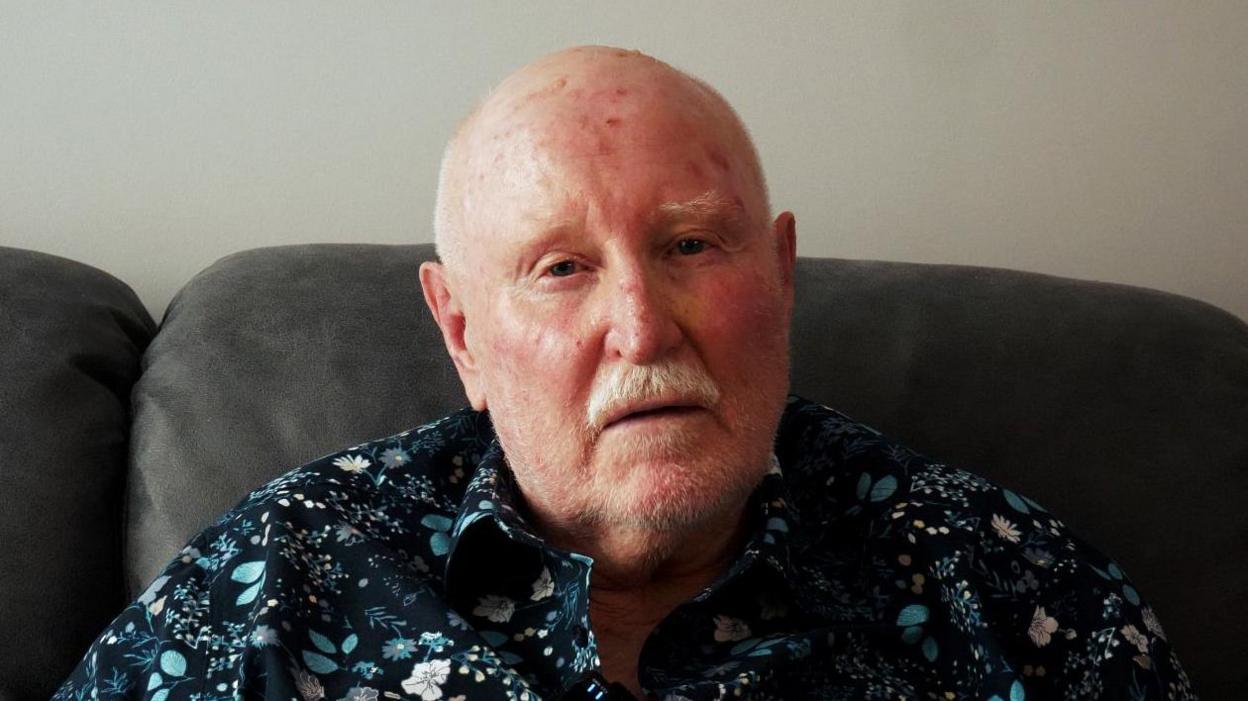Man hails new Parkinson's drug as 'life-altering'
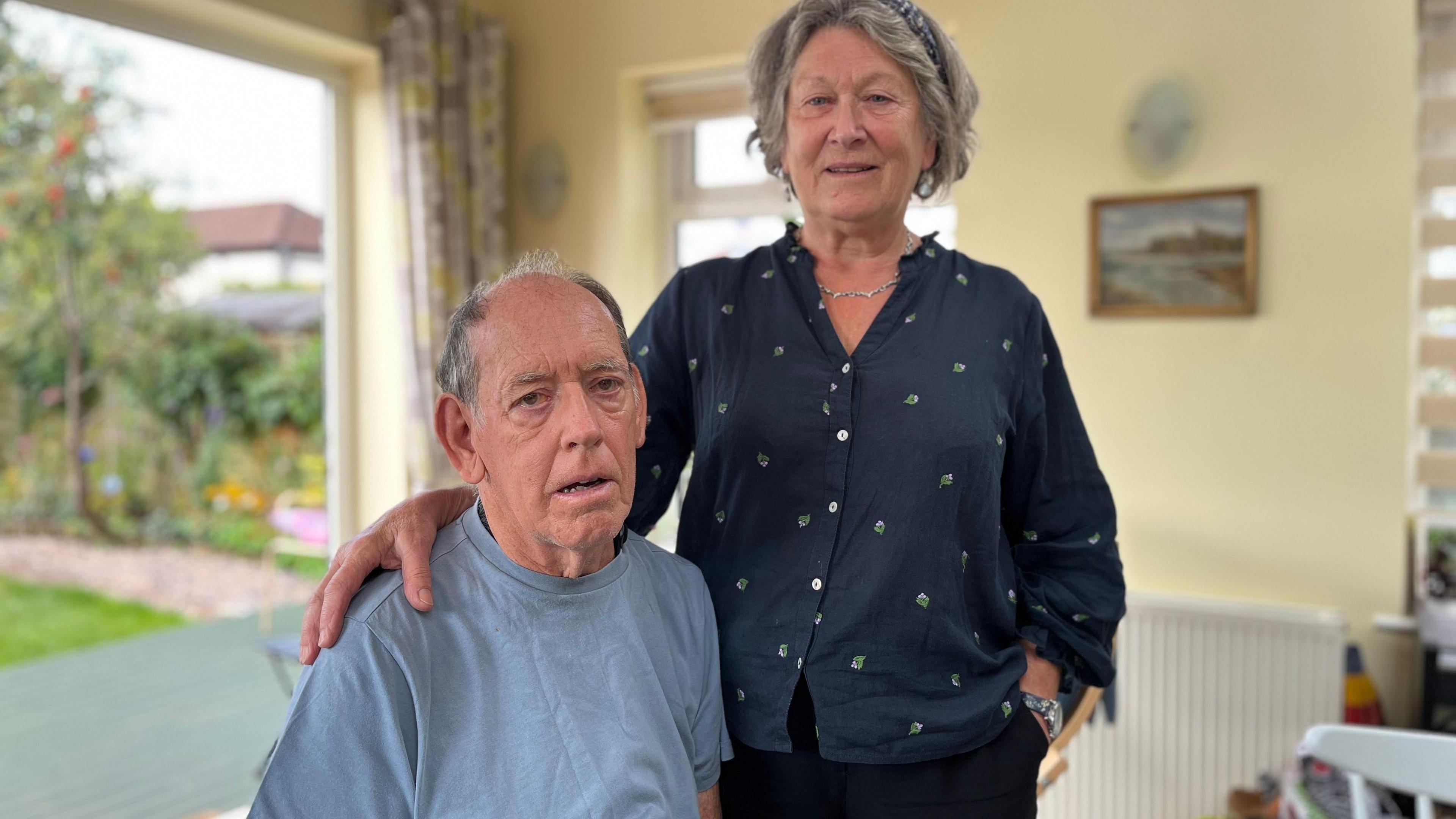
Rick Telford and his wife Lynne have praised the results of Produodopa, which was made available to almost 1,000 patients earlier this year
- Published
A man who has been living with Parkinson's disease for 20 years has described a new drug treatment as "life-altering".
Rick Telford, 70, from Heaton in Newcastle, previously had to take about 20 tablets a day to manage his symptoms.
In May, he became the first person in Tyne and Wear to be treated with Produodopa, which involves wearing a portable kit and using a pump to steadily release medicine into the bloodstream 24 hours a day.
"My voice is much stronger, my body is able to move more and I smile more," he told BBC Radio Newcastle.
Parkinson's disease is a condition in which parts of the brain become progressively damaged, external over many years, with symptoms including involuntary shaking and slow movement.
'Clock watcher'
The treatment is controlled by a small pump strapped to a patient's gut and steadily releases medicine into the bloodstream through a cannula under the skin.
Mr Telford's wife, Lynne, helped him to navigate the treatment, which is a combination of two drugs, foslevodopa and foscarbidopa.
It works by turning foslevodopa into the chemical dopamine, which helps transmit messages between the parts of the brain and nerves that control movement.
That helps manage Parkinson's symptoms, such as excessive movement or tremors.
"It was quite tricky to get your head around using the cannula at first but the results were almost instant," she said.
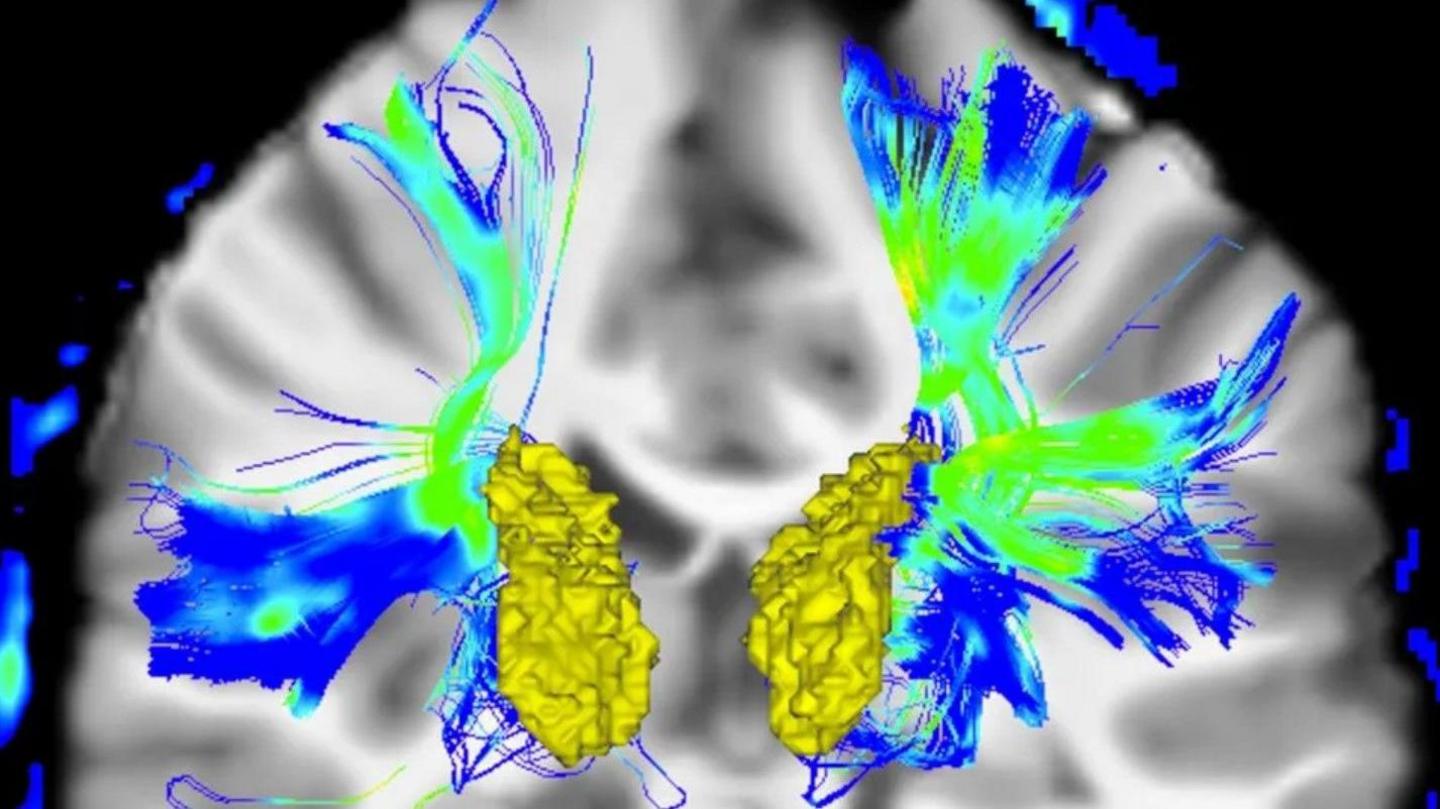
The drugs work by helping the brain transmit messages to nerves that control movement
Mr Telford added: "My voice is much stronger, my body is able to move more and I smile more. I didn’t notice that but other people would tell me."
Having lived with Parkinson’s for two decades, he said he had become a "clock watcher", as he had to take multiple medications at different times.
However, due to the pump he is not as regimented to those strict timings anymore.
"It’s been quite an adjustment but it allows me to do more activities," he added.
"I can still cycle, I walked into my local Italian restaurant of 20 years and they said ‘wow what’s happened with you, what’s changed?' It must be noticeable".
'Finding a cure'
In England, almost 1,000 people are eligible for the new treatment after it was made available on the NHS in February for people with advanced stages of the disease.
It was approved by the National Institute for Health and Care Excellence (NICE), after successful clinical trials.
Mr Telford said he hoped it would go on to help others with advanced Parkinson’s, and he was hopeful , with more research, of a future cure.
"We need full tilt approach into finding a cure," he said.
"They've done it with other illnesses, I hope they can do it for Parkinson’s because there's a lot of us."
Parkinson's UK describe it as "the fastest growing neurological condition in the world".
The charity previously said the drug would not be suitable for everyone, and those with Parkinson's should speak to their consultant or Parkinson's nurse.
Follow BBC North East on X, external, Facebook, external, Nextdoor and Instagram, external. Send your story ideas to northeastandcumbria@bbc.co.uk.
Related topics
- Published16 February 2024
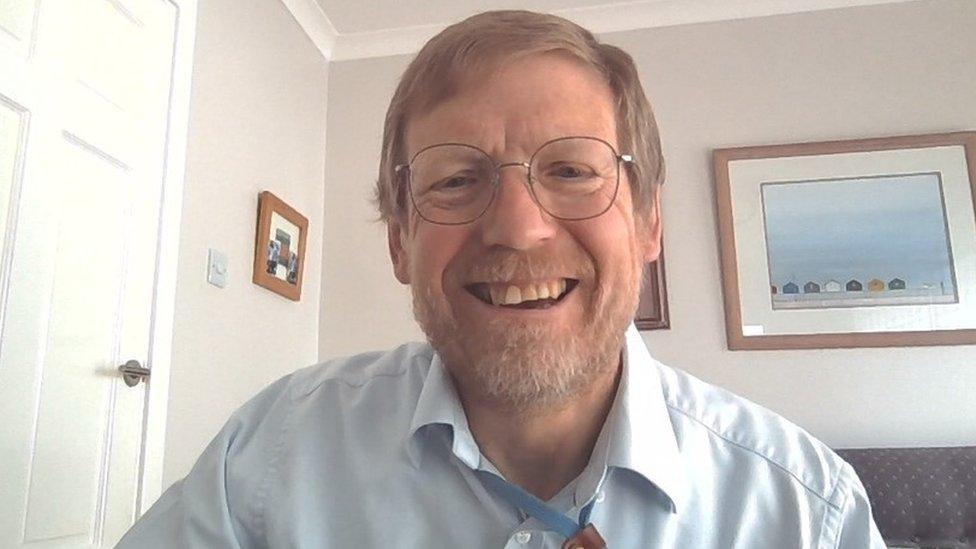
- Published19 July 2024

- Published2 July 2024
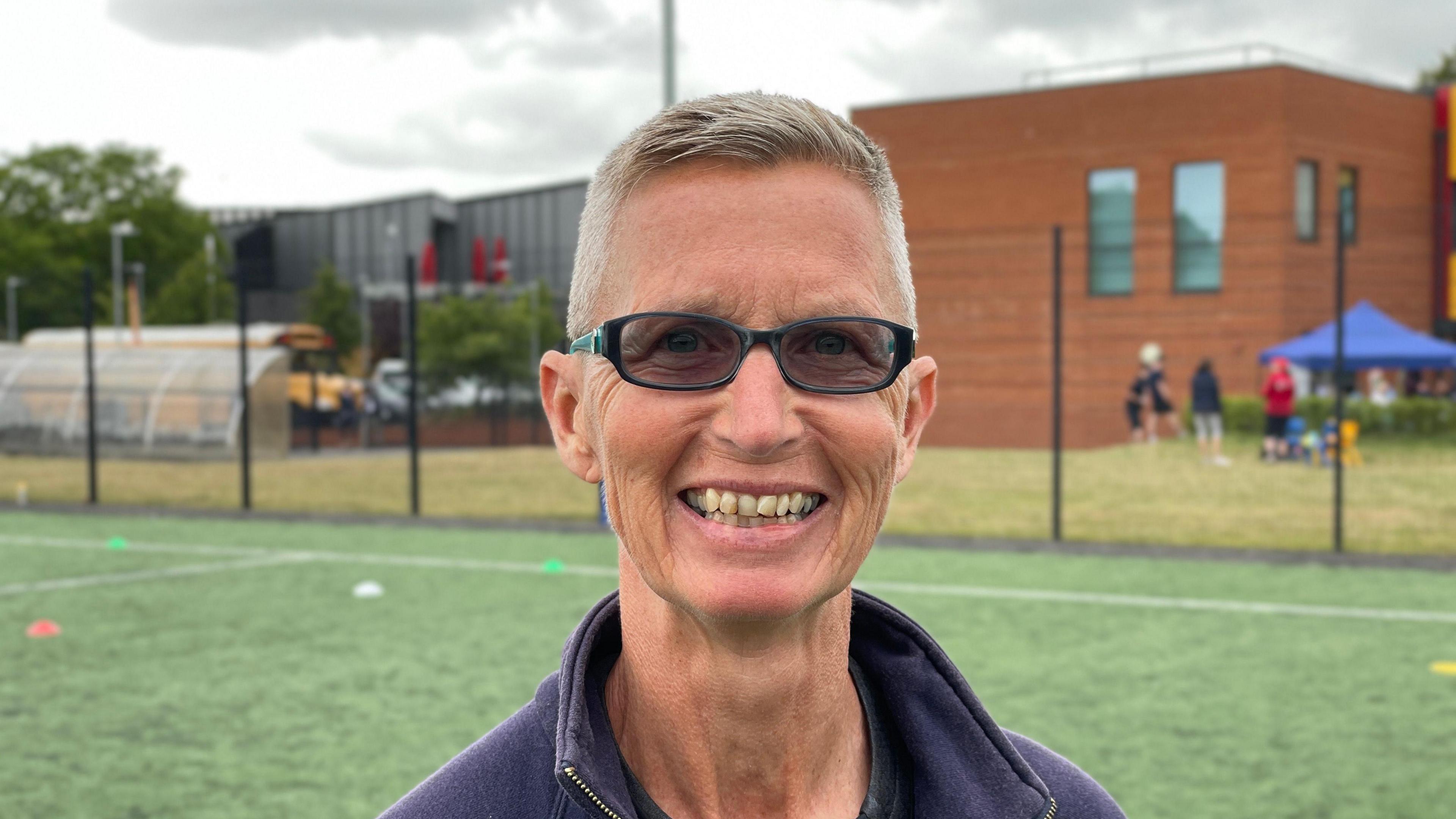
- Published17 July 2024
